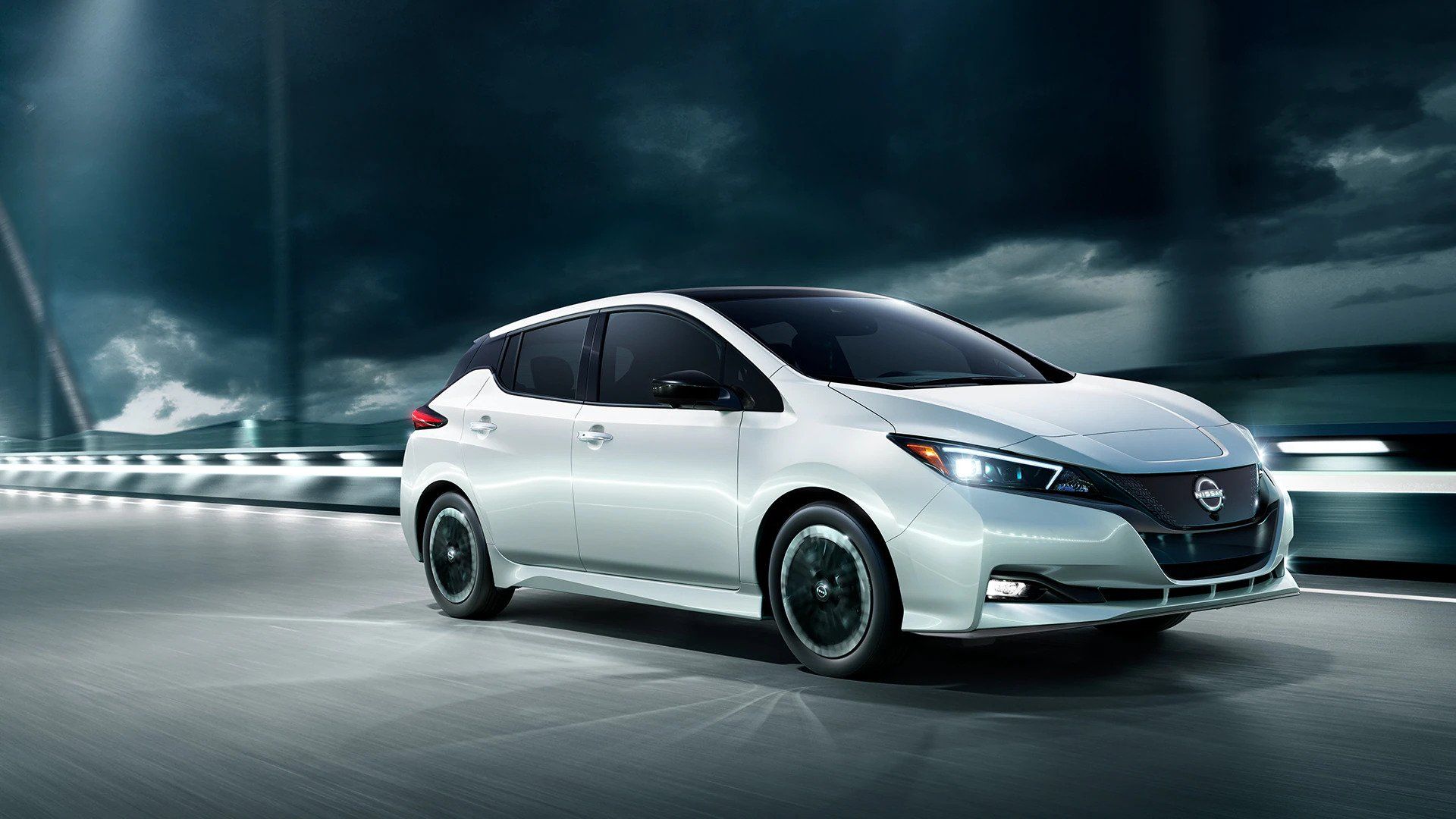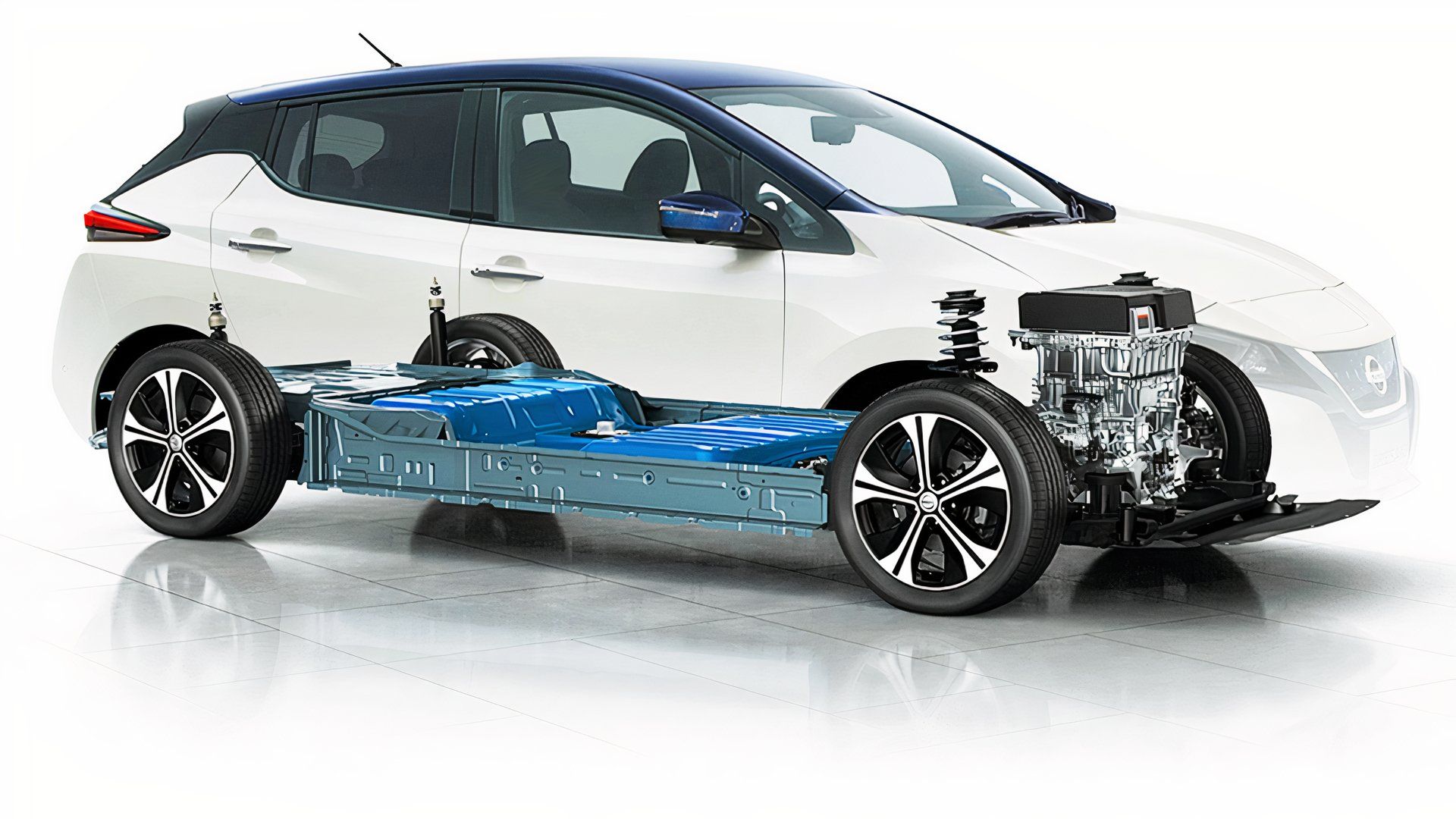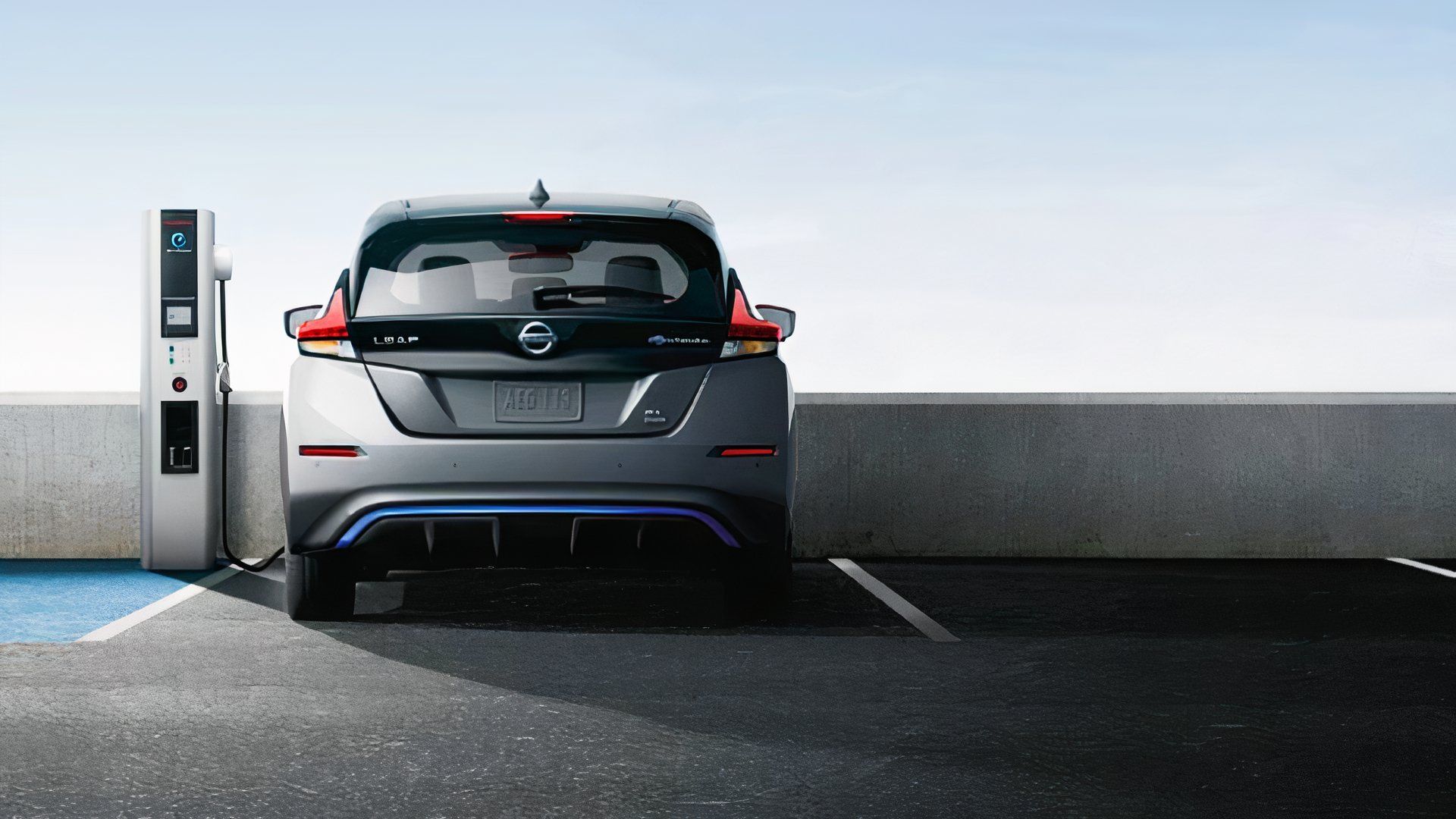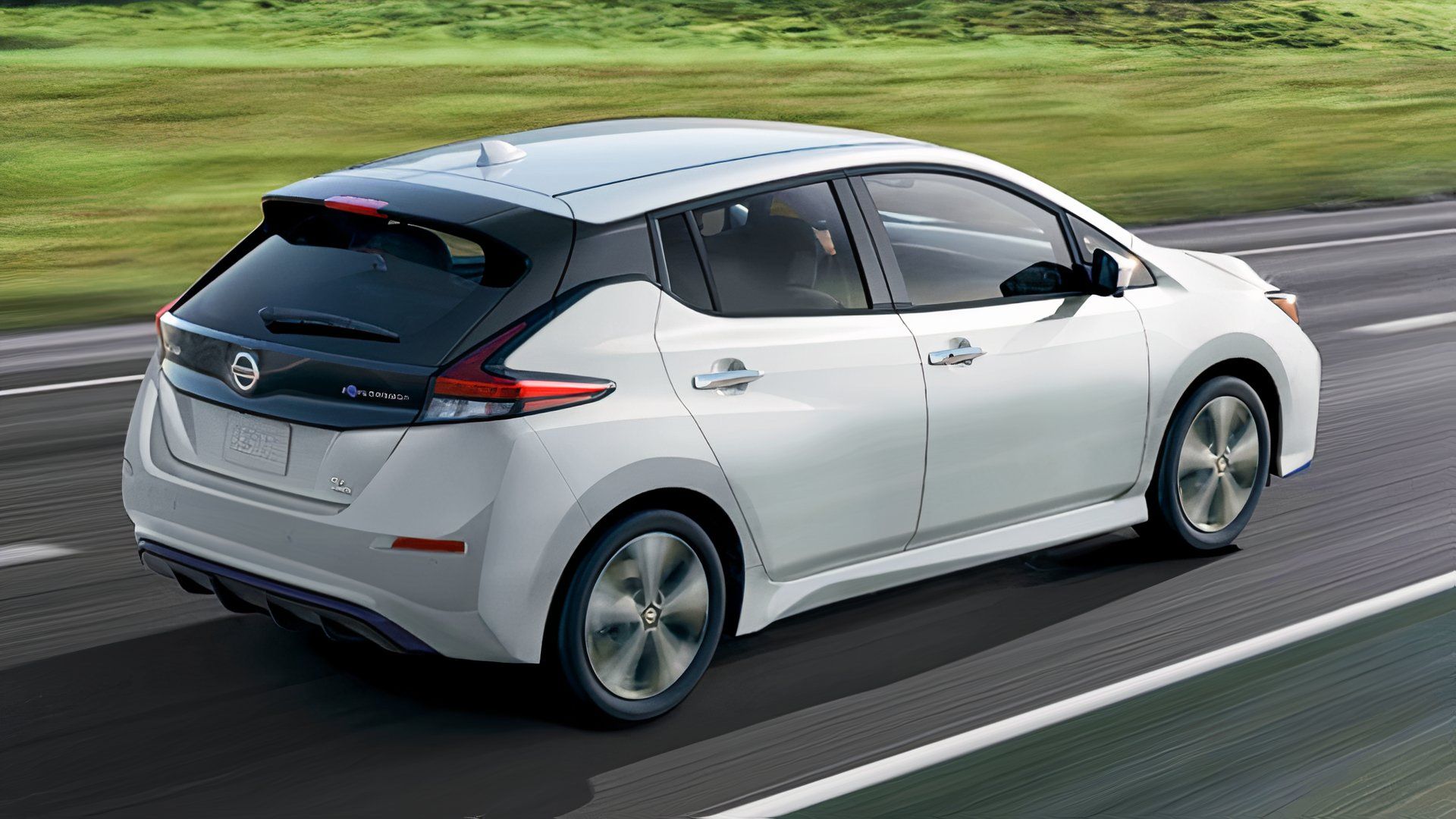While some automakers are just rolling out their first fully electric car models, other automakers are already in their fourth or fifth model years. The electric vehicle space has aged, and some of the most popular EV nameplates are already half a decade old. Some electric cars have a strong reputation for reliability while others are still too new to judge accurately.
One Japanese automaker has been producing a small electric car for over a decade. Nissan launched the first mass-produced electric car in history back in 2010. Now, 15 years later, this electric car remains relevant, and older models have become great pre-owned EVs. One three-year-old Nissan electric car is more durable than some brand-new electric cars.
In order to give you the most up-to-date and accurate information possible, the data used to compile this article was sourced from Nissan and other authoritative sources.

Related
The Nissan Leaf Is Suddenly Popular Again…Kind Of
The sudden surge in sales of Nissan’s aging LEAF EV may be a sign that the automaker needs to make a new one very quickly.
The 2022 Nisan Leaf Has A Reliable Battery
Unlike internal combustion engine vehicles, EVs rely heavily on an expensive battery to drive power to the wheels throughout their lifespan. An electric car with an unreliable battery often translates to a shorter lifespan and a problematic ownership experience. Beyond the ability to maintain sufficient range over time and through harsh conditions, electric vehicle batteries also can have issues overheating, resulting in dangerous fires.
An example of an EV with a problematic battery is the Chevrolet Bolt before its redesign. The Bolt once garnered huge attention from the automotive world because of its range and practicality. Then, it faced a mass recall after overheating issues became too big of a concern to ignore. When it comes to EVs, having a reliable battery is a huge factor in a nameplate’s success.
Nissan’s Focus On Battery Degradation
The Nissan Leaf hasn’t always been reliable. It benefits from years of improvement following its 2010 launch. In 2014, the Japanese automaker introduced its new Lizard battery, addressing concerns about degradation. The new battery held up better against power loss caused by extreme temperatures, which is a huge challenge for many electric vehicle batteries.
Nissan Leaf owners on Reddit praise the battery’s reliability. Since the company has already addressed major degradation concerns in much older model years, it had time to focus on other aspects on the electric car’s design language, making it even more appealing over time. Competitors like the Tesla Model 3 don’t benefit from 15 years of production experience. Many electric car nameplates are still in their infancy, and automakers are still working out kinks in battery tech as a result.
Electric vehicles naturally lose a small percentage of total capacity every year due to degradation, so choosing an EV with a reliable battery can make a huge difference in your ownership experience. The 2022 Nissan Leaf benefits from previous trial and error as well as over a decade of technological advancement. Its battery isn’t the only reason why it’s a better choice over some brand-new electric cars.
The 2022 Nissan Leaf Has A Five-Star NHTSA Rating
America’s National Highway Traffic Safety Administration is a trusted source for testing a vehicle’s crash safety and evaluating its build quality. NHTSA rated the 2022 Nissan Leaf a perfect 5/5 stars for overall safety, making it one of the safest electric cars in its segment. So, its dependability goes beyond a reliable battery. The EV earned high scores for NHTSA’s frontal barrier test, side barrier test, and side pole test. It also earned a perfect combined front seat rating.
In the event of a crash, the National Highway Traffic Safety Administration has determined that this electric car is among the safest of its kind. The 2022 Leaf also earned good crashworthiness scores from the Insurance Institute for Highway Safety (IIHS), another reputable source for vehicle safety ratings. So, what safety features does Nissan’s small electric car come standard with?
Nissan Leaf Safety Features
- Blind-spot warning
- Lane-departure warning
- Rear automatic braking
- Automatic emergency braking with pedestrian detection
- High beam assist
- Rear cross-traffic alert
The 2022 Nissan Leaf includes several standard safety features that make the EV safer for occupants and the public, including blind-spot warning and automatic emergency braking with pedestrian detection. These features also make operating the vehicle easier and more convenient. Aside from great crashworthiness ratings, the Leaf also features technology that makes it an ideal choice for drivers with safety concerns. Now that we’ve established why the Leaf is both a safe and reliable choice, let’s explore whether it’s an affordable choice for you.
You Can Get A 2022 Nissan Leaf For Under $15,000
Thanks to the Leaf’s affordability and depreciation, you can score a Nissan Leaf for an extremely low price compared to the average new electric vehicle. In fact, a used 2022 Nissan Leaf’s price is lower than that of many 2022 hybrid and internal combustion vehicles of the same size. According to Kelley Blue Book, a 2022 Leaf has a typical listing price of $15,283. It has a fair purchase price of $14,283 with under 27,000 miles. So, you can score a relatively new Nissan Leaf for under $15,000. This is a steal considering the electric car’s history of reliability and safety ratings.
How Much Should You Pay For A Nissan Leaf?
The 2022 Nissan Leaf has an original MSRP of $27,400. So a fair purchase price of $14,283 suggests a deprecation rate of around 47% in just three years. That’s above-average depreciation, even for an electric vehicle. If you’re interested in a 2022 Leaf, models with under 27,000 miles going for the typical listing price of $15,283 or under are fair, since the electric car should last for several years of ownership with a low cost of ownership. Choosing a used 2022 Nissan Leaf model over a new electric car can save you thousands on a reliable EV in both initial purchasing costs and maintenance costs. Furthermore, you can opt for upper trim levels to get a Nissan Leaf with more driving range and standard features.
Performance Specifications
|
Original MSRP |
$27,400 |
|
Output |
147 horses |
|
Torque |
236 pound-feet |
|
Battery (kWh) |
40 kWh |
|
Original Driving Range |
149 miles |
|
Fuel Efficiency Combined |
111 MPGe |
|
0-60 MPH |
7.4 seconds |
|
Level 2 Charging Time |
7.5 hours |
|
DC Fast Charging Time |
40 minutes |
The 2022 Nissan Leaf SL Plus is the most expensive of the nameplate’s five trims. It has an original MRSP of $37,400. The final trim has a 62 kWh battery and 215 miles of driving range (when new). According to Kelley Blue Book, a 2022 Leaf SL Plus with under 27,000 miles has a fair purchase price of $19,302. Aside from more driving range, this trim also includes several features that base model owners can’t experience.
2022 Nissan Leaf SL Plus Features
- Heated steering wheel
- Leather-trimmed seats
- Heated front seats
- One-pedal driving with regenerative braking
- 9.0-inch touchscreen infotainment system
- Bose premium audio system
- Semi-autonomous driving
Nissan’s SL Plus is the superior trim by far, offering a more comfortable and convenient driving experience. From comfier seats to regenerative braking, it’s a better choice than lower trims, especially as a used model because of depreciation.

Related
10 Things To Know About The Nissan Leaf
The Nissan Leaf has been around for a while, but it is still a great entry-level EV. Here’s everything you should know about it.
2022 Nissan Leaf vs. New Electric Cars
The 2022 Nissan Leaf S and 2022 Nissan Leaf SL Plus are both much more affordable than the average new electric car as used models. The SL Plus’ specs are closer to that of popular models like the Hyundai Ioniq 6 than the Leaf S. Ultimately, new electric cars offer more power and driving range, but they are in a completely different price range.
|
2022 Nissan Leaf S |
2022 Nissan Leaf SL Plus |
2025 Tesla Model 3 |
2025 Hyundai Ioniq 6 |
2025 BMW i4 |
|
|
Starting Price |
$15,283 (KBB Typical Listing Price) |
$20,302 (KBB Typical Listing Price) |
$42,490 ($34,990 after tax incentive) |
$42,700 |
$52,800 |
|
Power Output |
147 horses |
214 horses |
295 horses |
225 horses |
282 horses |
|
Torque |
236 pound-feet |
250 pound-feet |
309 pound-feet |
258 pound-feet |
317 pound-feet |
|
Battery (kWh) |
40 kWh |
60 kWh |
79.7 kWh |
77.4 kWh |
68.7 kWh |
|
Original Driving Range |
149 miles |
215 miles |
363 miles |
240 miles |
266 miles |
|
Fuel Efficiency Combined |
111 MPGe |
104 MPGe |
130 MPGe |
135 MPGe |
120 MPGe |
|
0-60 MPH |
7.4 seconds |
6.5 seconds |
4.2 seconds |
7.0 seconds |
5.5 seconds |
|
Level 2 Charging Time |
7.5 hours |
11 hours |
8–12 hours |
6–7 hours |
8-9 hours |
|
DC Fast Charging Time |
40 minutes |
1 hour |
30 minutes |
22 minutes |
40+ minutes |
If you want to purchase your first electric vehicle, the 2022 Nissan Leaf SL Plus is a better option than new electric cars because it’s less than half the price of newer models. Furthermore, the nameplate’s battery is reliable and it has excellent safety scores. The Nissan Leaf has a longer history of reliability than any new EV as the first mass-produced electric car. It could outlast many new electric cars because of the progress Nissan has made regarding its battery over the last 15 years. Would you get a 2022 Nissan Leaf, or is a newer EV more desirable?



